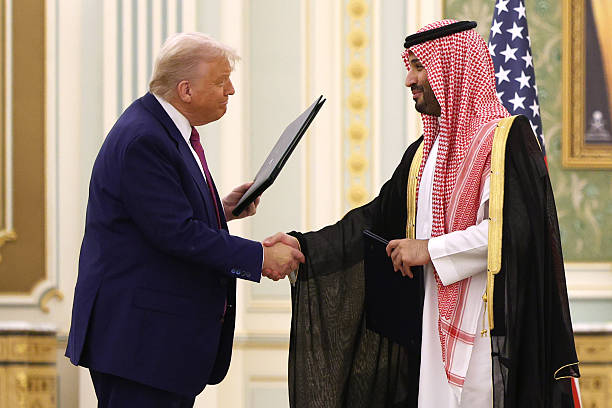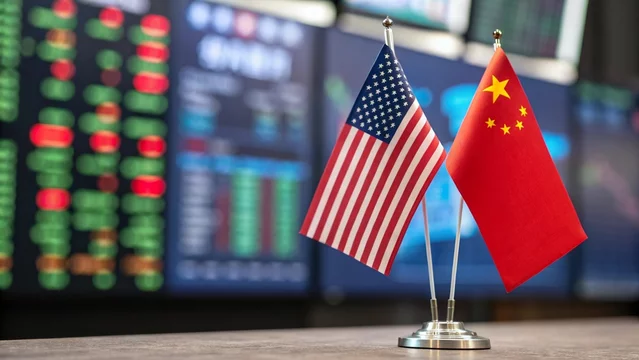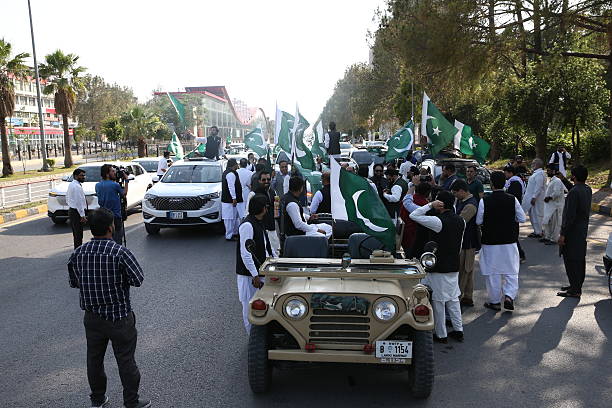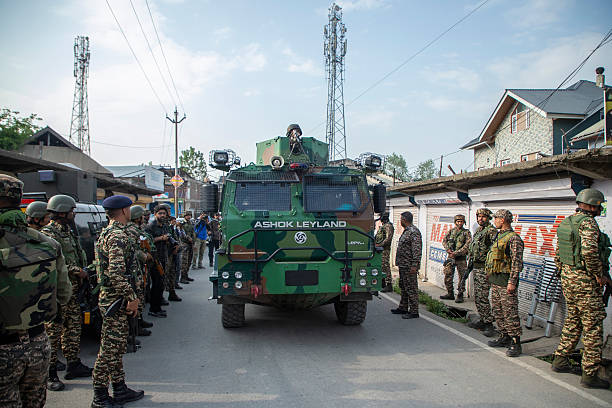Trump Meets Syrian President Ahmed al-Sharaa in Historic Saudi Summit, Announces End to US Sanctions
Donald Trump met Syrian President Ahmed al-Sharaa in Saudi Arabia, announcing the end of US sanctions and signaling Syria’s reintegration into the global community.
 Ahmed Al-Sharaa, Syria's president, at the Elysee Palace in Paris, France, on Wednesday, May 7, 2025. Al-Sharaa's visit marks his first official trip to Europe since the toppling of Bashar al-Assad in December. Photographer: Nathan Laine/Bloomberg via Getty Images
Ahmed Al-Sharaa, Syria's president, at the Elysee Palace in Paris, France, on Wednesday, May 7, 2025. Al-Sharaa's visit marks his first official trip to Europe since the toppling of Bashar al-Assad in December. Photographer: Nathan Laine/Bloomberg via Getty ImagesFormer U.S. President Donald Trump met with Syrian President Ahmed al-Sharaa in Saudi Arabia on Monday, marking the first encounter between leaders of the two nations in 25 years. The meeting, held alongside Saudi Crown Prince Mohammed bin Salman, came ahead of the Gulf Cooperation Council (GCC) summit and signals a potential turning point in Syria’s reintegration into the international community following the collapse of Bashar al-Assad’s regime.
During the half-hour meeting, Trump described Sharaa, a former jihadist who previously led the Syrian wing of al-Qaida and fought against U.S. forces in Iraq, as a “young, attractive guy. Tough guy. Strong past. Very strong past. Fighter.” Sharaa, who had a \$10 million U.S. bounty on his head until December 2024, has recently sought to moderate his image and lead a new government in Damascus following Assad’s ousting in late 2024.
Trump’s announcement that the United States would lift all sanctions on Syria was made the night before at an investment conference in Saudi Arabia. “I am ordering the cessation of sanctions against Syria to give them a fresh start,” Trump told the GCC. “It gives them a chance for greatness. The sanctions were really crippling, very powerful.”
In Damascus, the news was met with widespread jubilation. Streets filled with beeping cars waving Syrian flags, and a traditional Syrian band played in the old quarter of the capital. Social media flooded with videos of Trump dancing, including his signature double-fist pump set to Syrian patriotic songs. “Everyone is happy and in the streets. Thank God, a thousand times thank God,” said Omar al-Nafa, who works in education.
Syrians expressed hope that the end of sanctions would signal a brighter future. “For 15 years the world had this picture of us Syrians as refugees. Now they see us as we are. You can finally see light and you can see hope,” said Hossam al-Khouli, a 50-year-old handicraft shop owner in Damascus’s old city. His store, located near the Ummayad mosque, now displays both Syrian and Saudi flags, thanking Riyadh for helping arrange the Trump-Sharaa meeting. “When Trump spoke last night, it was the first time in my life that I listened to any president in the world and began to clap. He’s a great man, really, he is a great man,” Khouli added.
According to a White House spokesperson, Trump urged Sharaa to “deport Palestinian terrorists,” assist in the fight against Islamic State, and address Syria’s remaining chemical weapons stockpiles. The meeting reportedly came at the urging of both Prince Mohammed and Turkish President Recep Tayyip Erdoğan, who have backed the new Syrian government in recent months.
The Trump administration had previously been cautious about engaging with Sharaa due to his militant past. Sharaa once led the Islamist group Hayat Tahrir al-Sham, which evolved from al-Qaida’s Syrian branch before severing ties in 2016. However, the new Syrian leadership, with support from Turkey and Saudi Arabia, spent months lobbying for this meeting, offering incentives including access to Syrian oil, reassurances for Israel’s security, and a proposal to build a Trump Tower in Damascus.
Trump expressed optimism about Syria’s future, stating that Sharaa had a “real shot at holding it \[Syria] together” and confirmed that Syria had agreed to eventually join the Abraham Accords, which normalize relations with Israel. The UAE, Bahrain, and Morocco previously signed these U.S.-brokered accords in 2020.
Despite Israeli skepticism toward the Islamist-led Syrian government, including recent airstrikes to prevent Syrian government deployments near Israel’s borders, Trump moved forward with lifting sanctions. Previously imposed in response to Assad’s violent crackdown on protests in 2011, the sanctions included Syria’s removal from the Swift banking system and major restrictions on trade.
The U.S. State Department had provided Syria with a 12-point list of conditions for lifting sanctions, including the protection of religious minorities and allowing continued U.S. counterterror operations within Syria. While negotiations were still ongoing, Trump made the announcement unilaterally on Tuesday night.
Syria’s economy has been devastated by 14 years of war, with the United Nations estimating that over 90% of the population lives in poverty. The country faces widespread infrastructure collapse, limited electricity, and patchy internet access. Nafa, the educator in Damascus, expressed cautious optimism: “It will take some time for it to be actually implemented, but hopefully it will help the economy.”
Following the meeting in Saudi Arabia, Trump traveled to Qatar, where he oversaw the signing of a \$96 billion order from Qatar Airways for up to 160 Boeing aircraft, along with a statement of intent for more than \$38 billion in future defense investments.







Conversation